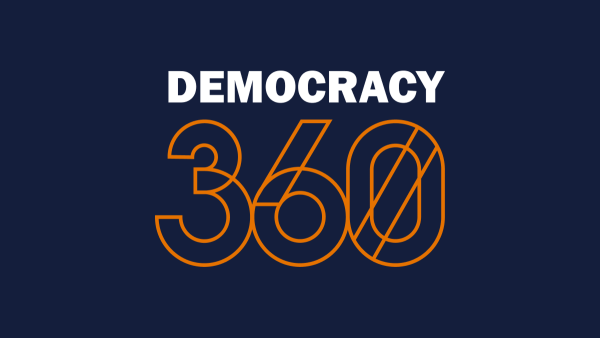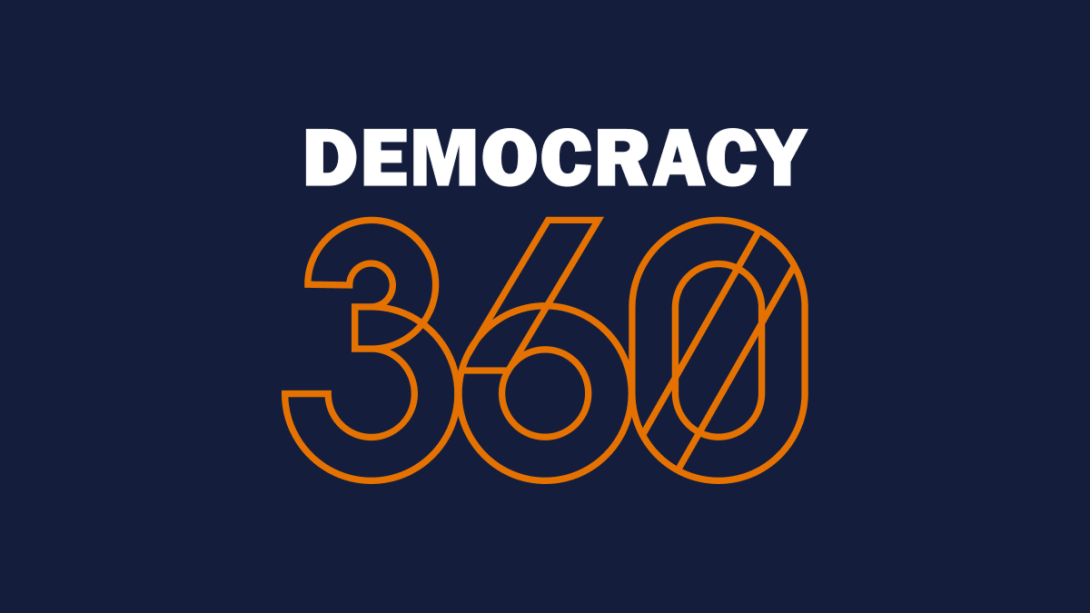Conference Topic
Civic Learning & Deliberative Dialogue
Democracy360 Event
Panelists discuss how universities as anchor institutions can effectively support access to educational resources for underrepresented local youth in the Charlottesville-Albemarle region of Virginia.
Democracy360 Event
Student Showcase: Participating in Democracy
How do students learn about and engage with key ideas and practices of democracy? Students offer their answers through the lenses of different fields and areas of study—music, history, writing, urban and environmental planning, law, and environmental sciences.
Democracy360 Event
Race, Learning, and American Democracy
An examination of the nation’s racial learning landscape and the actions that educators can take to help all students fully explore our nation’s past and, going forward, contribute to societal choices about racial healing.
Bringing Civic and Ethical Lenses to Students’ Career Preparation
Theresa Castor, Ashley Finley, Dreama Montrief Johnson, Connie Jorgensen, Ashwin Vaidya
For most college students, their chosen major is the centerpiece of college and an envisioned route to future careers. Now many institutions are changing their approach by emphasizing cross-disciplinary questions and courses along with a focus on practical problem-solving in real-world settings.
Democracy360 Event
In Search of Crosswalks: Connecting the K-12 and Postsecondary Civic Learning Movements
What strategies are educators using to bring high-quality civic learning to 60 million students in 100,000 schools by 2030? Experts in education explore Maryland’s efforts to align K-12 and postsecondary civic learning.
Democracy360 Event
Civics 101: Educating Engaged Citizens and Future Leaders
Experts in education discuss the critical influence of civic learning on workforce development, the role two-year institutions of higher education play, and what it means to educate whole citizens.
Democracy360 Event
Constructive Dialogue Institute: Fostering Dialogue Skills in Students
Participants review the prepare-support-intervene (PSI) approach, which gives educators the tools to prepare students, support them during conversation, and intervene if de-escalation is required.
Democracy360 Event
Constructive Dialogue Institute: Facilitating Dialogue with Peers
Student leaders review the PSI (prepare-support-intervene) approach, a model created by the Constructive Dialogue Institute that gives leaders the tools to prepare their communities for dialogue, support them during conversation, and intervene if de-escalation is required.
Democracy360 Event
The New Momentum to Make College Civic Learning Universal
A movement for universal civic learning is gaining both policy leadership and campus-level commitment across all sectors in postsecondary education. But can it prevail against a dominant narrative that sees higher education as “job-skills” only?
Democracy360 Event
‘How To Disagree Better,’ with World Debate Champion Bo Seo
Journalist, author, and two-time world debating champion Bo Seo leads a workshop on how to navigate disagreement constructively so that we can have enlightening and productive discussions.

